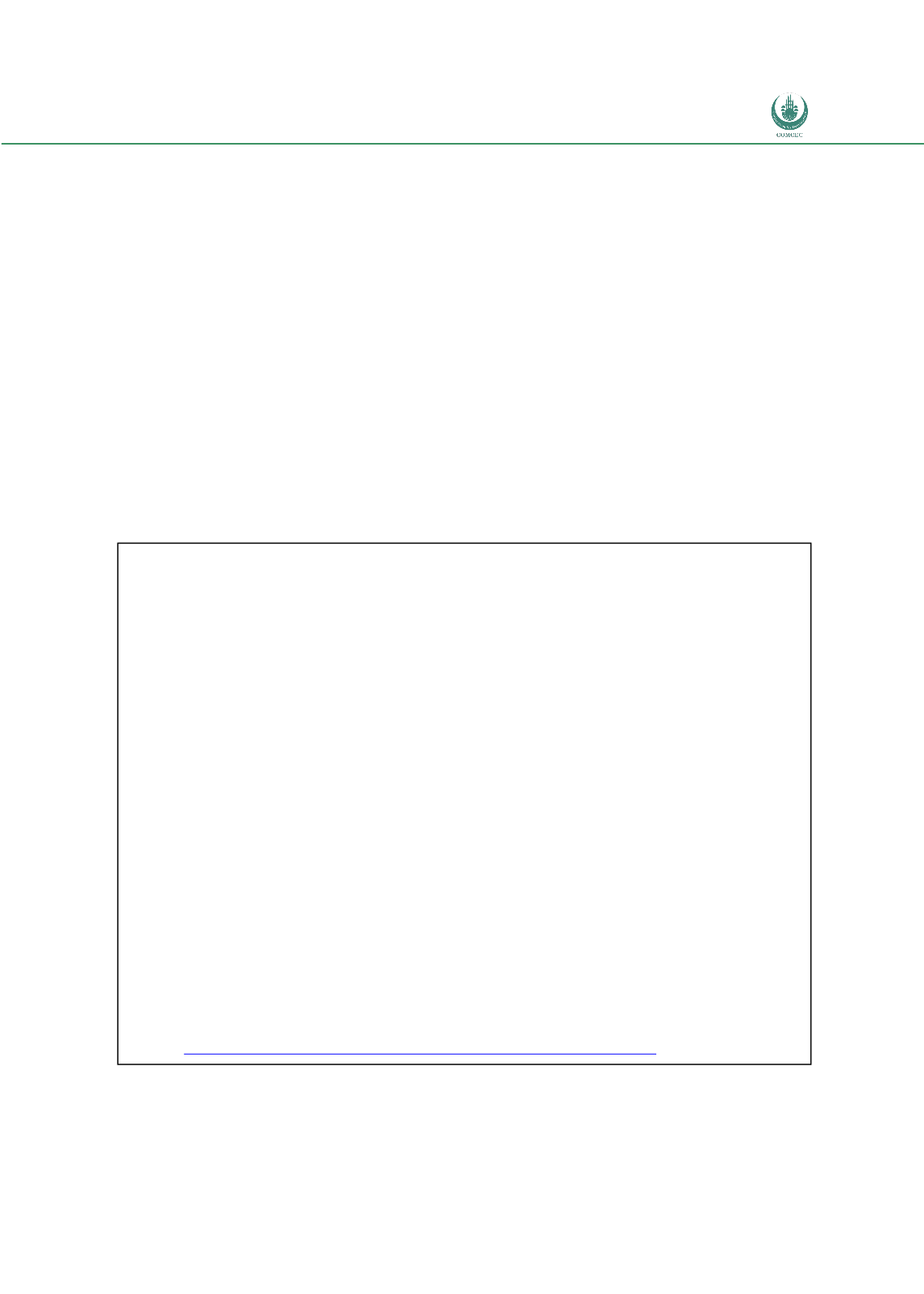

FACILITATING INTRA-OIC TRADE:
Improving the Efficiency of the Customs Procedures in the OIC Member States
77
3.1.9. Post Clearance Audit
Post Clearance Audit is not a common practice in the OIC Member States. It is
implemented by a limited member states such as Pakistan, Kyrgyz Republic, Senegal,
Turkey and Malaysia. In some countries, e.g. Kyrgyz Republic, the overall success of
the program is below expectations due to various reasons such as lack of awareness
among the traders.
“Importers that have engaged in trade for at least three years and have exemplary
records may apply for special simplified customs procedures, subject to certain post-
entry auditing using risk analysis (Instruction on Post-Entry Control, Resolution No.
961, December 2004). Currently 14 importers, covering an estimated 5% of total
imports, benefit from these simplified procedures. It appears, however, that the
business community in general is not adequately informed about simplified
procedures or is reluctant to apply for eligibility, perhaps believing they are not
worthwhile.” (WTO Trade Policy Report 2013)
Box 9: Post Clearance Audit in Senegal
Post Clearance Audit is initiated with Decree No. 7282/MEF/DGD of 30/07/2009 in Senegal. Post-
clearance Audit Office (BCD) was established under the Directorate of Intelligence and Customs
Investigations. The BCD is composed of two sections namely Deferred Control Section and
Company Control Section. The deferred control section is responsible for auditing the returns
processed by customs offices and the Company Control Section is responsible for auditing the records
and documents held by traders.
According to the regulations, the companies are required to keep the records for the three years.
Customs officers have the right to access these documents related to the customs operations. An
annual audit plan is prepared in accordance with the performance contract signed with the Ministry of
Economy and Finance and is backed by the strategic plan of the General Directorate of Customs. The
activities are carried out according to the audit plan on the basis of information received from the
hierarchy or from the economic operators denouncing unfair practices.
The controls are conducted through document controls at the customs or at the trader’s site. For the
document controls, Customs requests the operator to present the relevant documents. The control can
be also conducted at the site of the operator. If an infringement is found after the control, the issue
may be solved by the agreement between the two sides or may be carried to the justice.
There are two types of difficulties faced during the implementation. The first one is related to staff.
The Administration does not have a sufficient number of well trained staff. Secondly, unsuitable
premises, limited facilities (vehicles and fuel for site visits) and inadequate information system lead to
obstacles in implementation.
Source
: http://www.wto.org/english/tratop_e/tradfa_e/casestudies_reports_e.htm
















